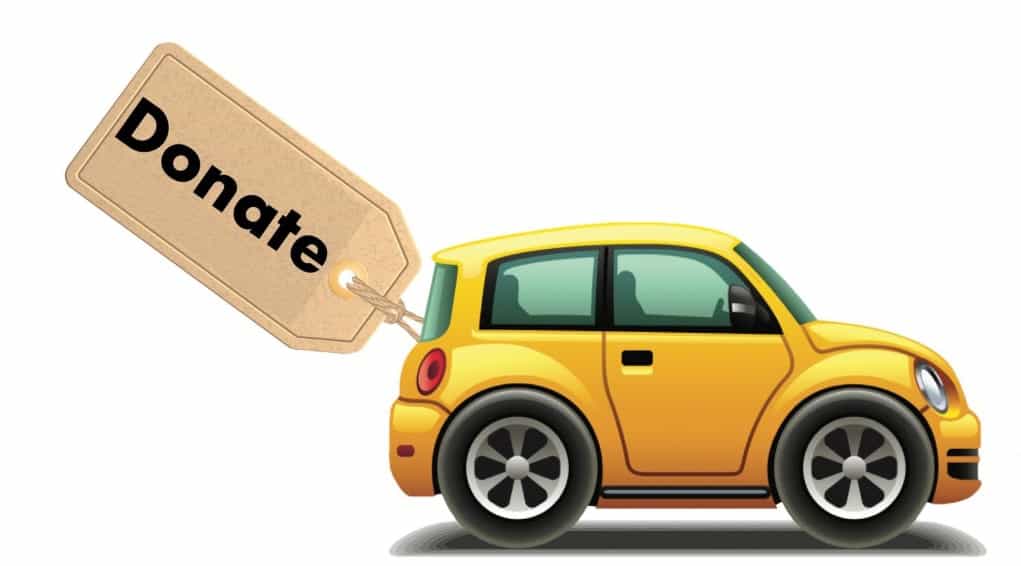This site contains product affiliate links. We may receive a commission if you make a purchase after clicking on one of these links.
Welcome to the world of car donation, where you have the power to make a difference in your community. By donating your car to a charity, you not only contribute to a worthy cause but also experience the satisfaction of giving back. This article will guide you through the process of car donation, highlighting its benefits, helping you choose the right charity, and providing valuable insights on maximizing your impact.
Understanding Car Donation
What is car donation?
Car donation refers to the act of gifting your used vehicle, whether it’s a car, truck, van, or even an RV, to a charitable organization. Instead of selling or trading in your vehicle, you choose to donate it, allowing the charity to either use the vehicle for their operations or sell it to generate funds.
How does car donation benefit charitable organizations?
Car donation provides charitable organizations with a valuable resource to further their mission. By receiving donated vehicles, nonprofits can use them to facilitate their work, such as transporting goods, providing transportation services, or even selling them to fund their initiatives.

The impact of car donation on local communities:
When you donate a car, you directly impact your local community. Charities often use the proceeds from the sale of donated vehicles to fund various programs and services that benefit individuals and families in need. Your car donation can help support vital community initiatives, such as education, healthcare, housing, and more.
Benefits of Donating a Car
The tax benefits of car donation:
One of the significant advantages of donating a car is the potential tax deduction. Depending on the laws in your country or region, you may be eligible to claim a deduction on your taxes based on the fair market value of the donated vehicle. Consult a tax professional to understand the specific tax benefits available to you.
Streamlining the car donation process:
Donating a car has become increasingly streamlined and hassle-free. Many charitable organizations and online platforms offer easy-to-follow processes, allowing you to complete your car donation with minimal effort. With just a few simple steps, you can make a significant impact.
How car donation can free up space and save on maintenance costs:
If you have a vehicle that you no longer use or that requires extensive maintenance, donating it can help free up valuable space in your garage or driveway. By eliminating the costs associated with repairs, insurance, and regular maintenance, you can save money in the long run while supporting a worthy cause.
Choosing the Right Charity
Researching and selecting a reputable charity:
Before donating your car, it’s essential to research and chooses a reputable charity that aligns with your values and cause preferences. Look for organizations with a track record of transparency, financial accountability, and impactful work in their respective areas. Websites and resources dedicated to charity evaluations can assist you in making an informed decision. Below are our top pick list of charitable organization for car donation:
- Habitat for Humanity
- Canine Companions for Independence
- Ronald McDonald House Charities
- The Salvation Army
- Goodwill
Factors to consider when choosing a charity for car donation:
Consider the mission and impact of the charity you’re considering. Ask yourself questions like: How does the organization use the funds generated from car donations? What programs and initiatives do they support? Are they actively making a difference in the community? By evaluating these factors, you can ensure that your donation goes to a cause that resonates with you.
Assessing the impact of the charity’s work:
Take the time to understand the impact that your chosen charity makes. Research their success stories, testimonials, and outcomes achieved through their programs. By learning about the real-world difference the charity is making, you’ll feel confident in your decision and the positive change your donation can bring.
Preparing Your Car for Donation
Cleaning and organizing the car:
Before donating your car, it’s a good practice to clean and organize it, both inside and out. While this step may seem insignificant, presenting a well-maintained vehicle demonstrates your care and increases its appeal to potential buyers if the charity decides to sell it.
Gathering all necessary documentation:
To streamline the car donation process, gather all the necessary documentation related to your vehicle. This includes the title, registration, maintenance records, and any other relevant paperwork. Having these documents readily available will save you time and ensure a smooth donation process.
Taking photographs for documentation purposes:
Consider taking photographs of your car from various angles as documentation before donation. These photos can serve as evidence of the vehicle’s condition at the time of donation, providing clarity in case of any disputes or issues later on.
Finding a Car Donation Program
Exploring different car donation programs:
There are numerous car donation programs available, ranging from large national charities to local nonprofits. Take the time to explore these programs, compare their processes, and evaluate their reputation and impact. Look for organizations with a history of successful car donation programs and positive reviews from donors.
Online platforms for car donation:
Online platforms dedicated to car donation have made the process more accessible and convenient. These platforms connect donors with charities, simplifying the entire transaction. Research reputable online platforms that have a strong network of charities and transparent processes to ensure your donation is in good hands.
Local organizations that accept car donations:
If you prefer to support a local charity or want to ensure your donation has a direct impact in your community, consider donating to local organizations that accept car donations. These organizations often have a deep understanding of the specific needs of your area and can utilize your donation effectively.
Assessing the Value of Your Car
Determining the fair market value of your car:
Before donating your car, it’s important to determine its fair market value. This valuation helps you understand the potential tax deduction you may be eligible for and provides insight into the impact your donation can make. Online resources, professional appraisers, and valuation guides can assist in determining the value.
Obtaining a professional appraisal for higher-value vehicles:
If you’re donating a high-value vehicle, obtaining a professional appraisal can be beneficial. An appraiser with expertise in valuing cars can provide an accurate assessment of your vehicle’s worth. This appraisal can serve as strong supporting documentation for tax purposes and maximize your tax deduction.
Understanding the impact of the car’s condition on its value:
The condition of your car plays a significant role in determining its value. Factors such as mileage, maintenance history, overall condition, and market demand influence the final appraisal. Keep in mind that even if your vehicle has some wear and tear, it can still make a meaningful contribution to a charitable cause.
Arranging for Car Pickup or Drop-off
Coordinating the logistics of car pickup or drop-off:
Once you have selected a charity and finalized the donation process, you’ll need to coordinate the logistics of car pickup or drop-off. Communicate with the charity to determine the most convenient method for both parties. Some charities offer free towing services, while others may require you to arrange transportation.
Understanding the options available for transportation:
Transportation options for car donation include both towing services and dropping off the vehicle at a designated location. Consider your circumstances and choose the option that is most convenient for you. Some donors prefer the ease of having the charity arrange towing, while others may prefer the satisfaction of personally delivering their donation.
Ensuring a smooth handover process:
To ensure a smooth handover process, communicate with the charity regarding the required documentation and any specific instructions they may have. Be prepared to sign necessary paperwork, including the title transfer and release of liability. By staying organized and following the charity’s instructions, you’ll help facilitate a seamless donation process.
Handling the Paperwork
Title transfer and release of liability:
As part of the car donation process, you’ll need to handle the paperwork associated with the title transfer and release of liability. Complete the necessary forms as required by your local Department of Motor Vehicles (DMV) or equivalent authority. This step transfers the ownership of the vehicle to the charity and releases you from any liability associated with the car.
Donor’s responsibilities in completing the paperwork:
As the donor, it is your responsibility to ensure that the paperwork is completed accurately and in compliance with legal requirements. Double-check all forms, provide the necessary information, and sign where required. If you have any questions or concerns, reach out to the charity or seek guidance from the appropriate authorities.
Retaining copies of all relevant documentation:
Throughout the car donation process, make sure to retain copies of all relevant documentation, including the title transfer, release of liability, and any receipts or acknowledgement letters provided by the charity. These documents serve as proof of your donation and can be crucial for tax purposes.
Maximizing Tax Deductions
Understanding the tax deduction process:
To maximize the tax benefits of car donation, familiarize yourself with the tax deduction process in your country or region. Research the specific guidelines and regulations set by the tax authorities. Understanding these rules will help you make informed decisions and ensure that you receive the maximum tax deduction allowed.
Documenting the car donation for tax purposes:
Proper documentation is essential when it comes to claiming tax deductions for your car donation. Keep all relevant documents, including the acknowledgement letter from the charity, any receipts, and a copy of the title transfer. These records will support your deduction claim and demonstrate the legitimacy of your donation.

Consultation with a tax professional for guidance:
If you have questions or concerns regarding the tax implications of your car donation, consider consulting a tax professional. They can provide personalized advice based on your specific circumstances and help you navigate the complexities of tax laws. A tax professional will ensure you make the most of your car donation tax deductions.
Alternative Donation Options
Donating a car to specific causes (e.g., veterans, education, environment):
In addition to general charitable organizations, consider donating your car to specific causes that resonate with you. Many charities focus on areas such as supporting veterans, improving education, protecting the environment, or advancing healthcare. By donating to these specialized causes, you can align your contribution with your personal values and passions.
Exploring non-vehicle donation options:
If car donation is not feasible or you want to explore other ways to give back, consider non-vehicle donation options. Charities often accept donations such as cash, stocks, real estate, and even valuable items. Research the causes and organizations you care about to discover additional ways to make a meaningful impact.
Matching donation programs and employer contributions:
Many employers offer matching donation programs, where they match their employees’ charitable contributions. Check if your employer has such a program in place and take advantage of it to amplify the impact of your car donation. Additionally, inquire about any other employer contributions or programs that support charitable giving.
Supporting the Cause Beyond Car Donation
Volunteering opportunities with the charity:
Your support for the cause doesn’t have to end with car donation. Many charitable organizations offer volunteering opportunities, allowing you to contribute your time and skills to their programs. Volunteering not only benefits the charity but also provides you with a deeper connection to the cause and a chance to witness the impact firsthand.
Spreading awareness through social media and personal networks:
Help spread the word about car donation and the cause you care about by leveraging social media and your personal networks. Share your car donation experience, the impact it has made, and the benefits of giving back. Encourage your friends and family to consider car donations or support charitable causes in their own way.
Encouraging others to donate their cars as well:
Inspire others to make a difference by encouraging them to donate their cars as well. Share information about the process, the benefits, and the impact it can have on communities and individuals in need. By actively promoting car donation, you can multiply the positive change generated by your own contribution.
Conclusion:
Car donation is a powerful way to make a difference in your community and support causes you care about. By understanding the process, choosing the right charity, and maximizing your tax benefits, you can ensure your car donation has a meaningful impact. Beyond car donation, consider other ways to support the cause and inspire others to join the movement. Start your car donation journey today and experience the satisfaction of giving back while freeing up space and saving on maintenance costs.
Frequently Asked Questions (FAQs) About Car Donation
Q: How can car donation benefit me?
A: Car donation offers several benefits. First, it allows you to give back to your community and support charitable causes that are important to you. Second, it can provide you with a tax deduction, potentially reducing your tax liability. Finally, by donating your car, you can free up space, save on maintenance costs, and eliminate the hassle of selling or disposing of the vehicle.
Q: What happens to the donated cars?
A: Once you donate your car to a charity, they typically handle the vehicle in one of two ways. They may use the car for their own operations, such as transportation for staff or program beneficiaries. Alternatively, they may choose to sell the car to generate funds for their programs and initiatives. Either way, your donation contributes to the organization’s mission and helps make a positive impact.
Q: How long does the car donation process take?
A: The duration of the car donation process can vary depending on factors such as the specific charity or program you choose and the logistics involved. Generally, it involves a few simple steps, including selecting a charity, preparing your car, completing the paperwork, and arranging for pickup or drop-off. In most cases, the process can be completed within a couple of weeks, but it’s best to check with the charity or program for a more accurate estimate.
Q: Are there any scams associated with car donations?
A: While the majority of car donation programs and charities are legitimate, it’s important to be cautious and avoid potential scams. To protect yourself, research and choose reputable organizations with a track record of transparency and accountability. Verify their nonprofit status, check for online reviews or testimonials, and look for clear information on how they use the proceeds from donated cars. If something seems too good to be true or raises suspicion, trust your instincts and consider alternative options.
Q: How do I report a suspected car donation scam?
A: If you come across a car donation program or charity that you believe may be fraudulent, it’s important to report it. Contact your local consumer protection agency, the Attorney General’s office, or the Better Business Bureau to report the suspected scam. Provide them with all the relevant information you have, including the name of the organization, their contact details, and any evidence or documentation you can provide.







